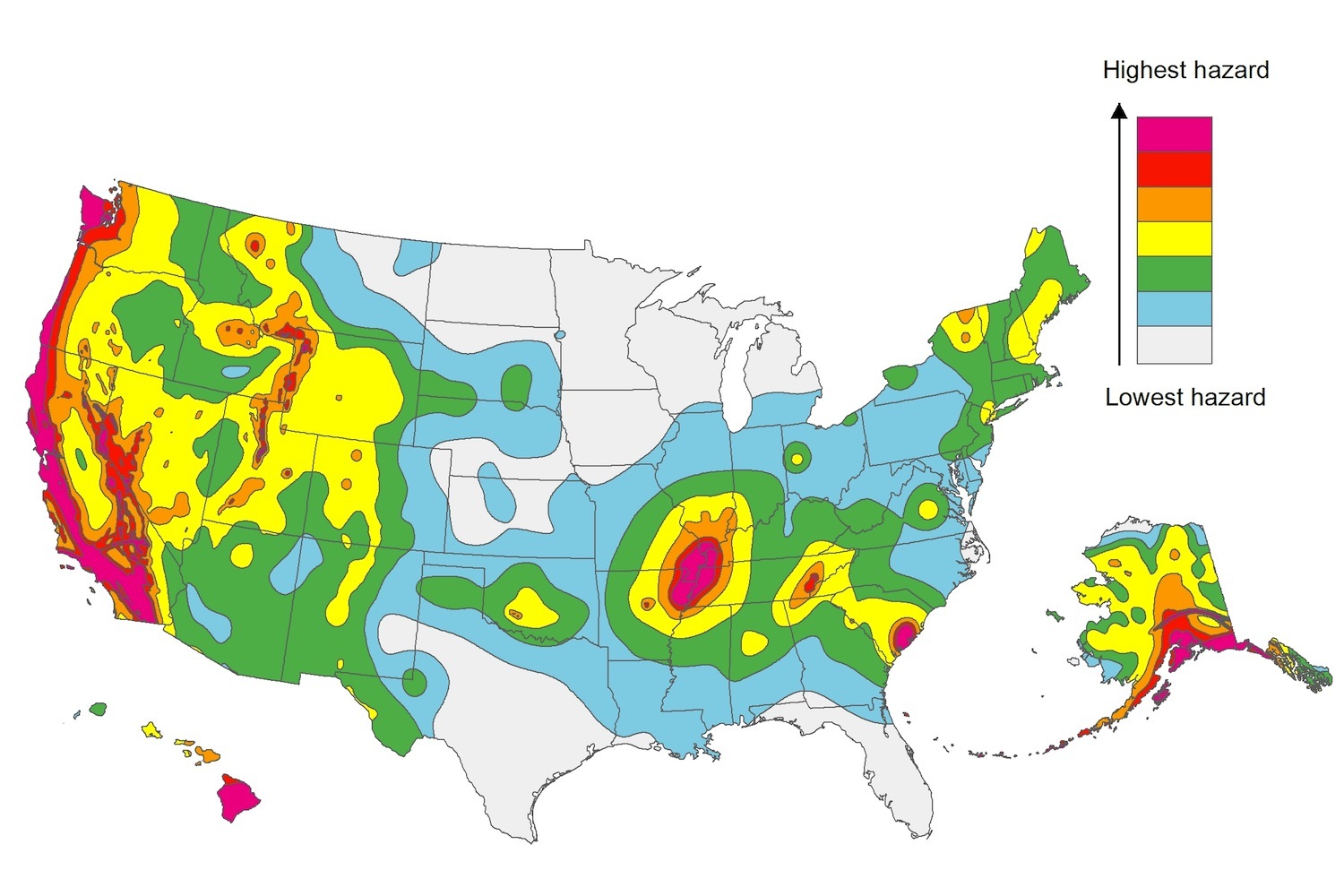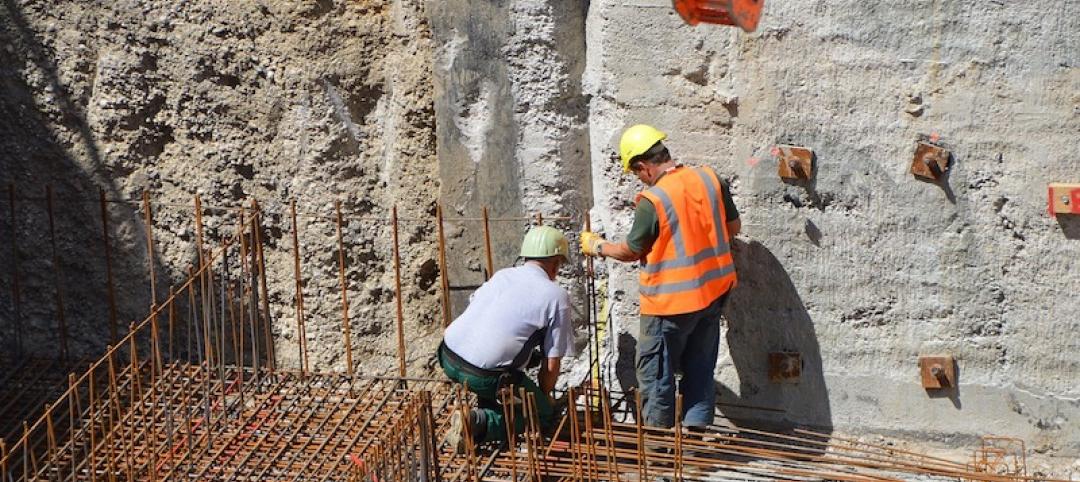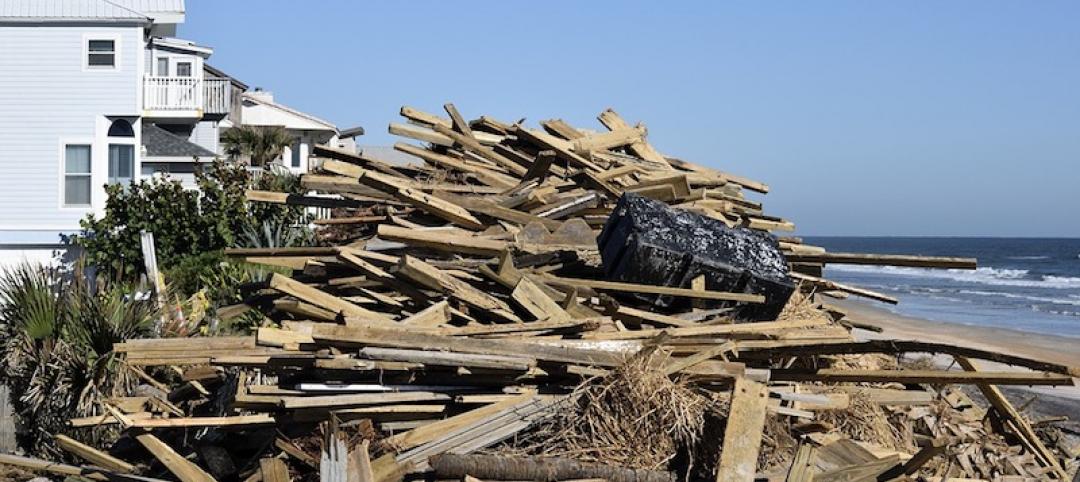The U.S. Geological Service recently released an update of U.S. National Seismic Hazard Maps that reflect the latest analysis of where future earthquakes will occur, how frequently they may occur, and their strength.
While all states have some potential for earthquakes, 42 of the 50 states have a reasonable chance of experiencing damaging ground shaking from an earthquake in the next 50 years. Sixteen states have a relatively high likelihood of experiencing damaging ground shaking. These states have historically experienced earthquakes with a magnitude 6 or greater. The hazard is especially high along the west coast, intermountain west, and in several active regions elsewhere such as near New Madrid, Mo., and near Charleston, S.C.
The eastern U.S. has the potential for larger and more damaging earthquakes than considered in previous maps and assessments. This finding is due to what scientists learned following the magnitude 5.8 earthquakes that struck Virginia in 2011. It was among the largest earthquakes to occur along the east coast in the last century, and indicated that even larger events in the region are possible.
The maps are used in risk analyses calculated using factors such as population levels, building exposure, and building construction practices. These assessments are used for establishing building codes, in the analysis of seismic risk for key structures, and in determining insurance rates. They can also aid emergency preparedness plans, and private property decisions such as re-evaluating one’s real estate and making it more resilient.
(http://www.usgs.gov/blogs/features/usgs_top_story/new-insight-on-the-nations-earthquake-hazards/)
Related Stories
Codes and Standards | Jan 30, 2019
New AGC program aims to diversify construction workforce
More diversity needed to keep pace with demand for workers.
Codes and Standards | Jan 29, 2019
Registration now open for LEED v4.1 for New Construction and Interior Spaces
Emphasizes human health and integrative building design.
Codes and Standards | Jan 25, 2019
AEC professionals should push for net zero projects
Educate and lead clients to more sustainable choices, says LEED fellow.
Codes and Standards | Jan 24, 2019
OSHA unaffected by federal government shutdown
Agency fully funded for first nine months of 2019.
Codes and Standards | Jan 23, 2019
Hackers can easily take control of construction cranes
Potential for serious harm is real, say researchers.
Codes and Standards | Jan 22, 2019
Initiative will introduce open-source software for commercial and public building retrofits
Energy analysis tool will identify energy efficiency opportunities.
Codes and Standards | Jan 18, 2019
Texas city sues developer over changes in $1 billion mixed-use project
Revised plan eliminated 8-acre lagoon, trolley, show fountain, and reduced retail space.
Codes and Standards | Jan 17, 2019
First resilience benchmarks for U.S. communities released
Provides way to evaluate current state of resilience and guidance for areas of improvement.
Codes and Standards | Jan 16, 2019
California mass timber building competition kicks off January 15
Competition will award $500,000 in grants to teams who design innovative buildings.
Codes and Standards | Jan 15, 2019
Hazard mitigation provisions in codes save lives and protect property
New NIBS study finds that adopting 2018 Intl. Codes generate $11 benefit for every $1 invested.

















